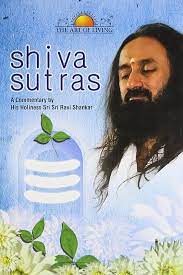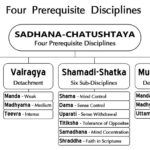The basis of science is trust in mathematics. If you do not trust mathematics, science cannot move an inch. Similarly, business cannot move if the industry has no trust in customers and customers in their creditors. And human value is about trusting the good nature that we all are endowed with, that we all are born with. I feel that success is really measured by the smiles a person has on his face. I won’t call someone successful if one is so tense, worried, disappointed, dejected and miserable. Who would want such a success?
There is a latest scientific discovery that a baby smiles 400 times a day and adolescent smiles only 17 times a day. But an adult does not smile at all. (Paras note: I object!) What is it that takes away this natural gift of humanity — smile, friendliness, compassion, broadmindedness, scientific temper — we need to ponder on that. If you ask a kid how many friends he has in the class, he will count on the fingers — 3, 4 or 5 in a classroom of 40-50 kids. The kids are unable to be friendly with all the 40-50 of their class when they come out of the school; how do you expect them to be friendly with the world. We have somehow failed to nurture the basic human values. Half the health is spent in gaining wealth; and half of this wealth we spend to gain back the health. I do not think that is good economics. We do not need to cultivate human values.
What really obstructs human values is stress and tension. If a person is tense, then his perception, observation and expression suffer. And you have only two ways to get rid of tension: either lessen your workload or increase the energy level. In today’s world, it is not possible to lessen the workload; it will keep on growing day by day. The alternative is to increase our energy. Here I usually suggest that we can take a look at different sources of energy. The food is our first source of energy — proper food and right amount of food, neither too much, nor too little. Second is proper sleep. Third, that is the most important source of energy, is breath, which we have ignored or forgotten about. You know 90 percent of impurities in the system go out through the breath.
With every breath we exhale, we are throwing out carbon dioxide, toxins are going out of the system and blood is getting purified. Breath is such an important source of energy but we have not done much to learn and study about our breath. The breath is the link between body and mind. For every emotion there is a corresponding rhythm in the breath. You would have noticed that when one is depressed, unhappy, anxious or tense, the breath moves and flows differently. Notice how we breathe when we are tense; when we are angry we breathe differently. I took up this aspect and we went to different areas around the world, including prisons. About 100,000 prisoners did this breathing exercise, for five days, a couple of hours each day. They had tremendous experiences.
Afterwards they said that if they had taken this before, their lives would have been different; perhaps they would not have been there. You know, in the spur of the moment when the emotions arise, the person acts and commits a crime and he does not know why he did it. By the time he comes to his senses he has already committed the crime. This mind, which oscillates between the past and the future anger about the past and anxiety about the future continuously, creates so many toxins in the body. Breath is the key to eliminate these toxins, these impressions, and harmonise the emotions.
Neither in school nor at home, have we ever heard or learned any thing about how to manage our emotions. The ancient Vedas, yogic system, yoga and also, Koreans with tai chi, have used these techniques. They have formulated breathing exercises that release your tension and improve your alertness and awareness. So I feel it is very important that we teach our children and our people as to how they should handle their negative feelings and their emotions. If a child is educated a little bit about Hinduism, Buddhism, Jainism, Sikhism, Taoism — all different spiritual and religious traditions — he will grow up thinking very favourably, with a broad mind and a sense of belongingness for everybody.
We can be creative and productive, and at the same time not lose the human, the humanness that we are all born with. Just material things or comfort alone do not really make a person comfortable. He may have a good bed to sleep on, but is unable to sleep due to insomnia or worry. He needs to get a broad understanding about himself and his priorities. A clarity in the mind makes things much easier -understanding his basic emotions like love, his interaction with people around him, knowing about his own ego or what his own intellect or mind is saying to him and introspection, will give him a few minutes of relaxation which is very vital. So, what is most important is introspection about one’s own life and how to improve the quality of life — this intention itself will open many doors for a person, to feel better about himself. Develop a sense of caring for each other and smile more.







